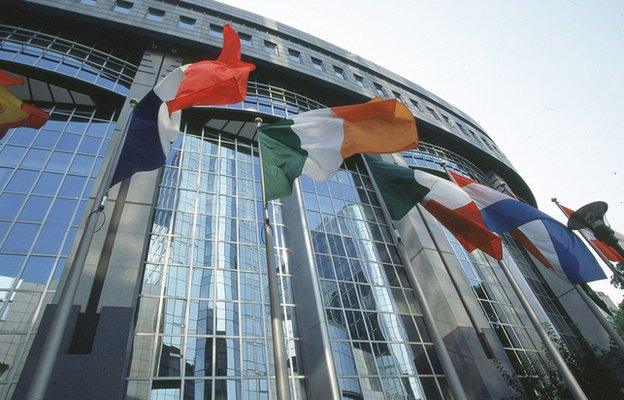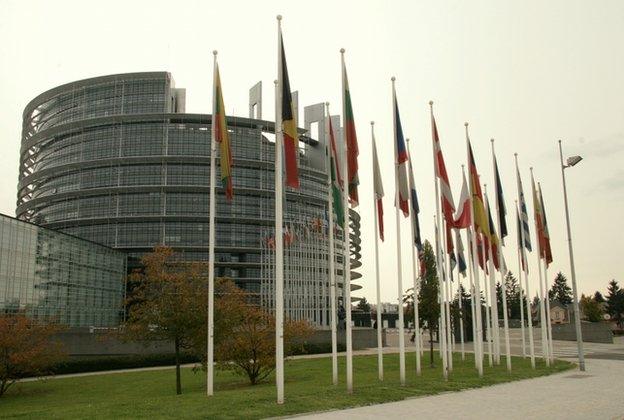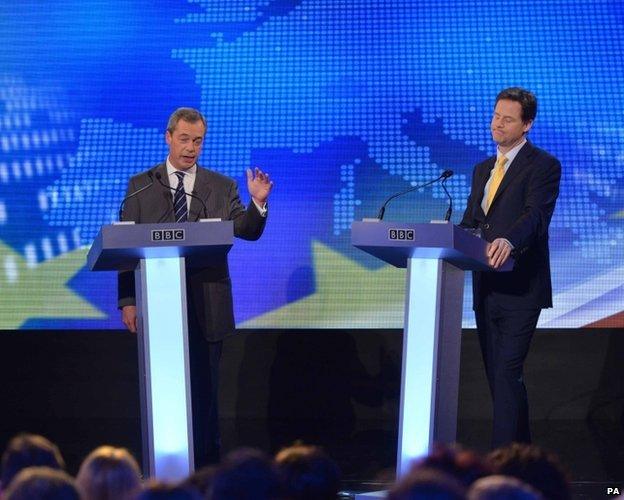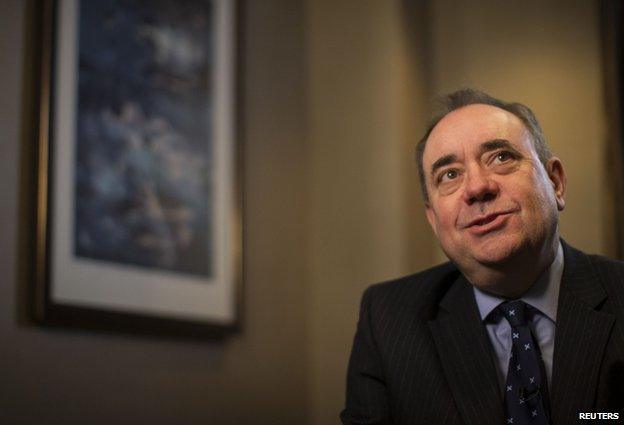Postcard from Brussels
- Published

European Parliament has a building in Brussels
All power blocs have their palaces. All palaces have their courtiers. All courtiers have their intrigue.
The European Parliament is no different. Ditto the wider European Union.
I spent a couple of days recently in and around the European Parliament in Brussels. (To the exasperation of many, mais pas tous, it also has a plenary home in Strasbourg plus residual administration offices in Luxembourg.)
As ever with courtiers, it is wise to pay careful, selective scrutiny. In the Brussels palace, there are many, many eager young individuals, rushing about with an apparent purpose.
It has long been my experience that true political importance is in inverse proportion to the earnestness of expression and the rapidity of progress through the corridors of power.
Perhaps there should be a mathematical formula.
Still, power there undoubtedly is in the European Parliament these days. Shared with the Council of Ministers, admittedly.

The European Parliament also sits in Strasbourg
Post the Lisbon treaty, Parliament has co-decision rights in nearly all policy areas along with the council which comprises member states.
Further, MEPs now vet the Commission, the EU's civil service - which may be a battle looming for the new parliament which will follow the elections towards the end of May.
So power there is. Real power. Which simultaneously delights and infuriates those who follow such matters closely.
It delights those who applaud the European project but argue that power should reside with a directly elected body.
It infuriates those who discern a broader trend towards the accumulation of power in EU as opposed to member state hands.
As with all political palaces, there is a cacophony of issues resonating around Brussels in these, the dog days of the present Parliament: economic matters chief among them.
But perhaps one might discern the core fault lines. The party political battle: left, right and centre. Competing attitudes towards the environment and energy.
Free trade versus protectionism - the underlying issue that persists. Europhobe versus Europhile: the hostile, the sceptical, the tolerant, the fervent.

The mainstream Westminster parties are facing a challenge from Nigel Farage and UKIP
Into that mix, these British isles add a couple of influential ingredients.
Firstly, there is the referendum on Scottish independence. I sought views on that in Brussels. From the MEPs, certainly, but also from people in the European capital.
I found a considerable degree of interest - alongside some apathy and nescience.
Some were intellectually curious, some were concerned about the impact upon the EU, some were supportive of the concept of self-determination. (Look out for my reports later this week.)
Then, of course, there is the possibility of a referendum on Britain's membership of the EU. That is, understandably, being scrutinised closely in Brussels . . . and in Berlin and in Paris and in . . .
It is far from being the case that Euroscepticism is confined to Britain. Undoubtedly, though, the prime minister's promise of an In or Out referendum, should he be returned to Westminster power, makes the issue rather more salient in the UK.
Self-evidently, there is a political overlap at play here, a leakage from the silo of European politics into the domestic version.

Europe is an important issue for Alex Salmond and the SNP, ahead of the Scottish independence referendum
The PM promises his referendum in order to hold off a challenge from UKIP - with their programme of opposition to the EU - and to quell disquiet on his own back benches.
Might there be a further leakage from the controversy over the EU into the Scottish referendum?
Again self-evidently, there is the continuing debate over Scottish membership and its associated terms.
But Scottish Nationalists discern another factor.
They argue that the debate between EU supporters and UKIP - and specifically the televised version between Nick Clegg and Nigel Farage - indicate that politics in England differs in terms and tone from Scotland, thus positing the need for a distinct polity. For independence, in short.
Their opponents dissent, seeking to characterise both the SNP and UKIP as quitters. Hence, for example, the Liberal Democrat conference slogan: "In Britain, In Europe, In Work."
In Brussels, they're watching. Eagerly, avidly.